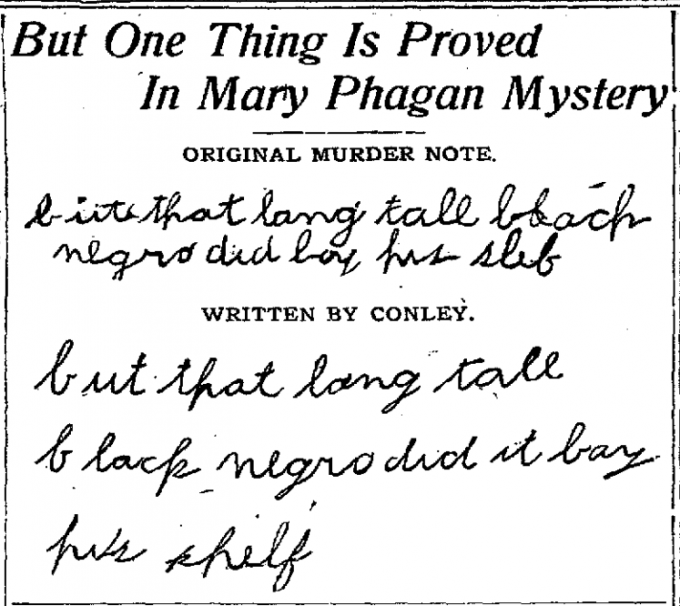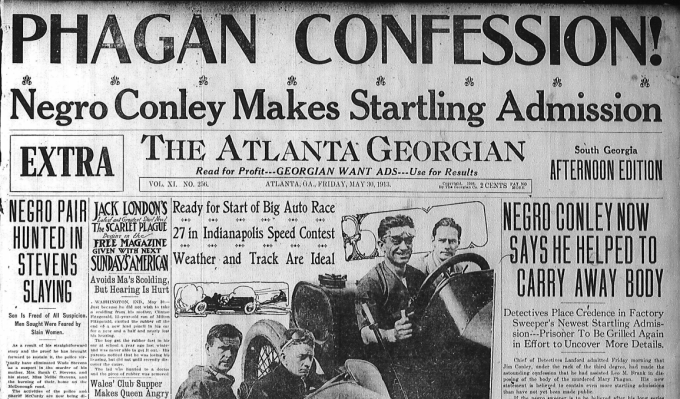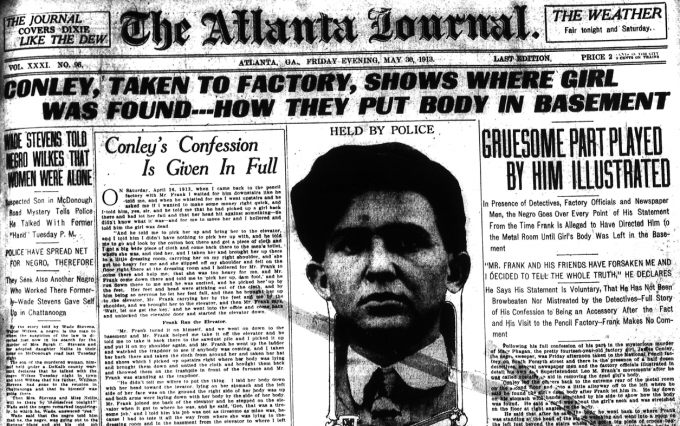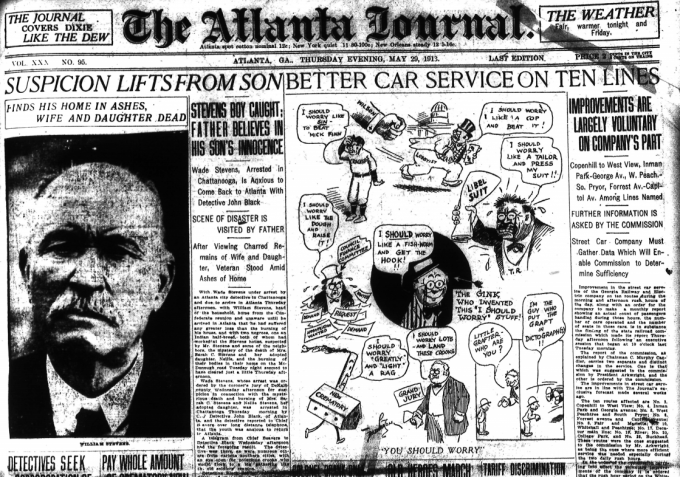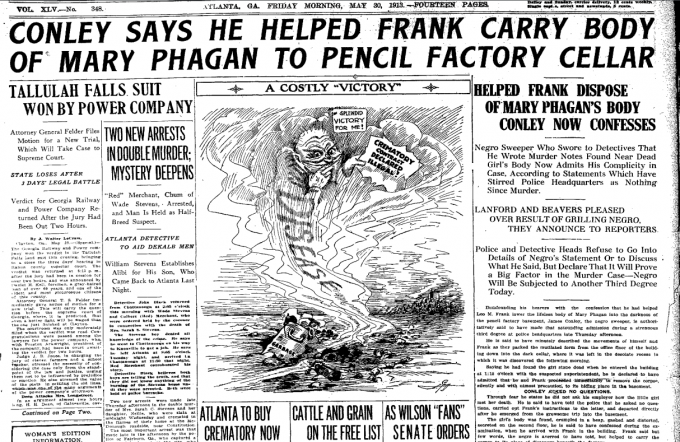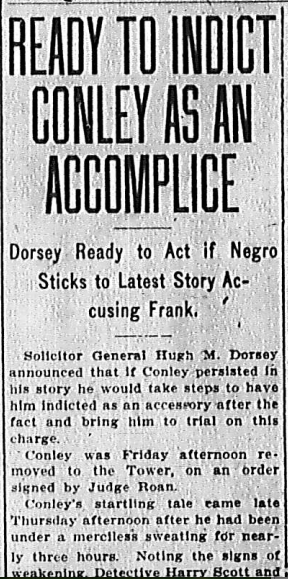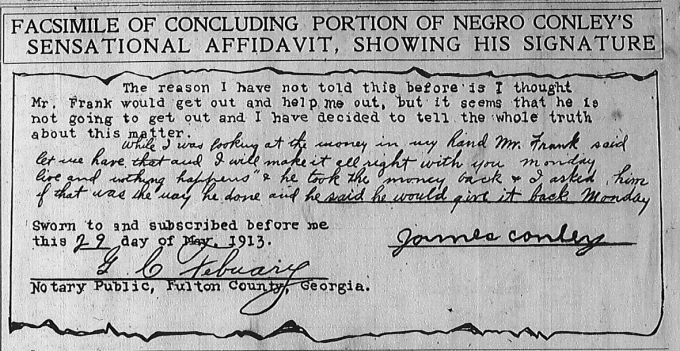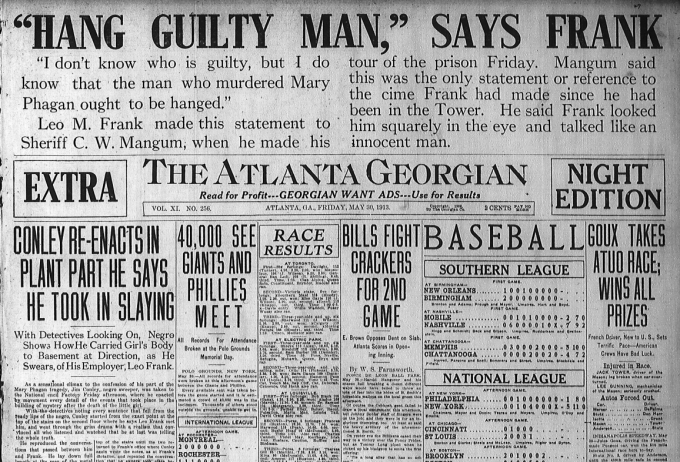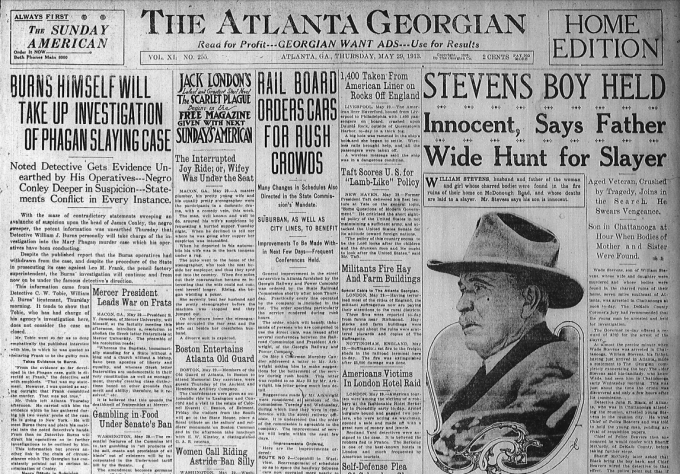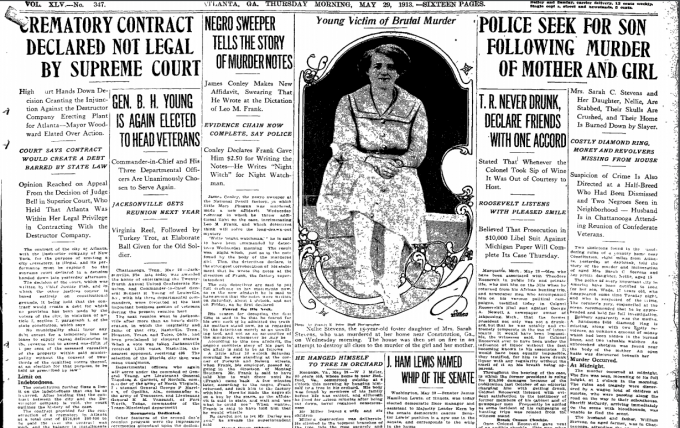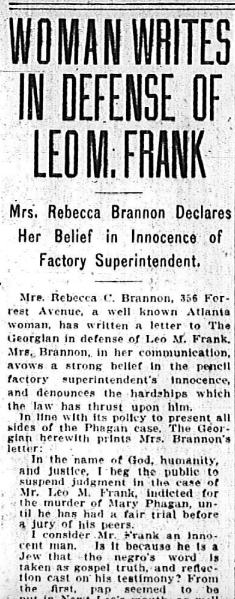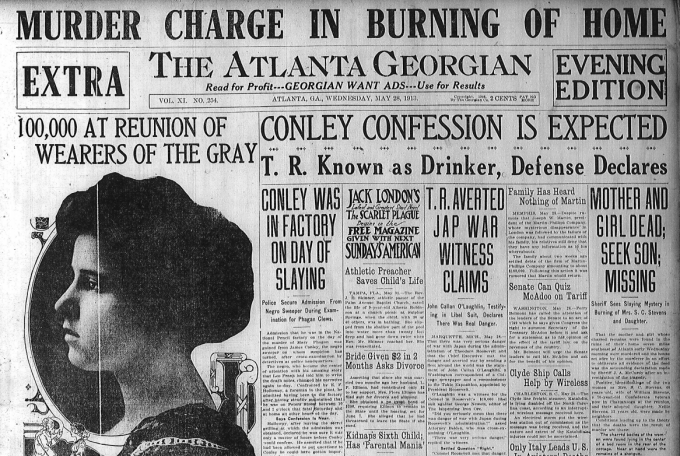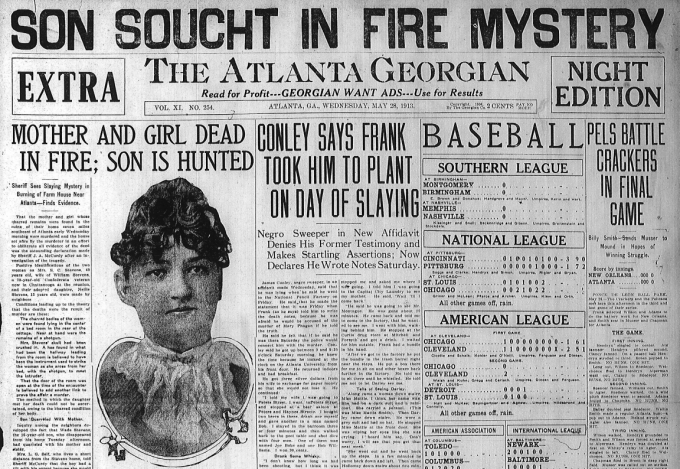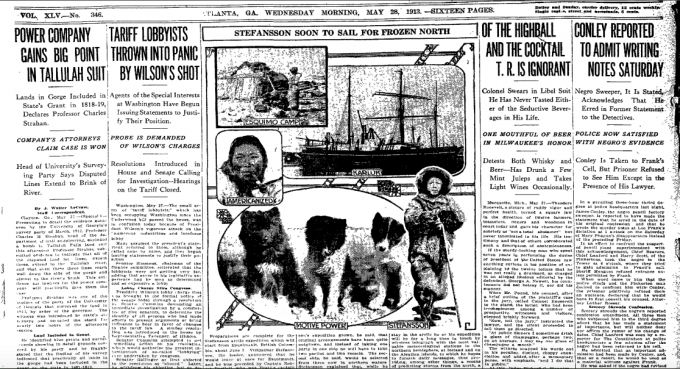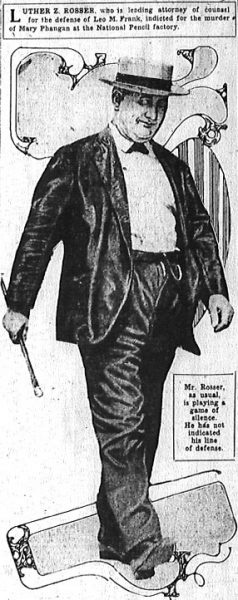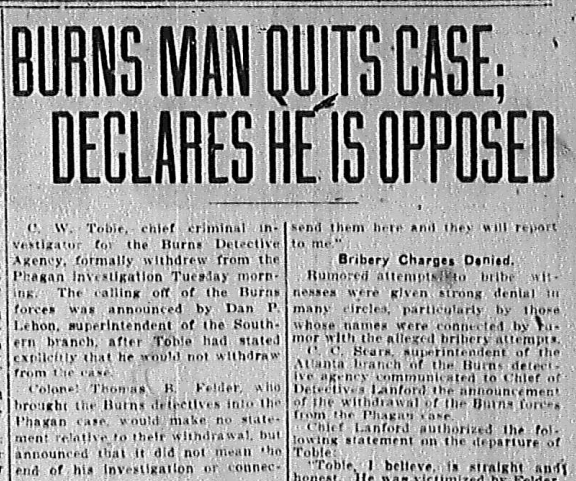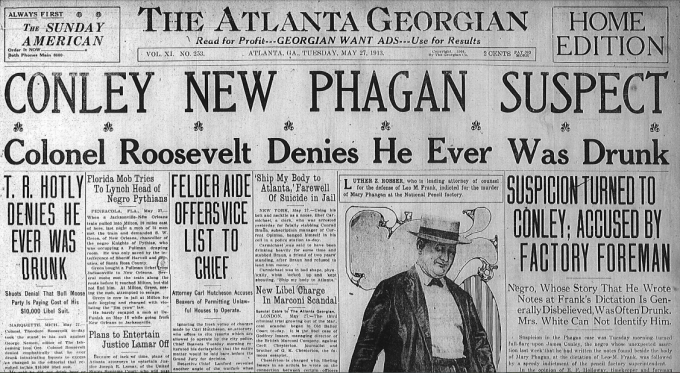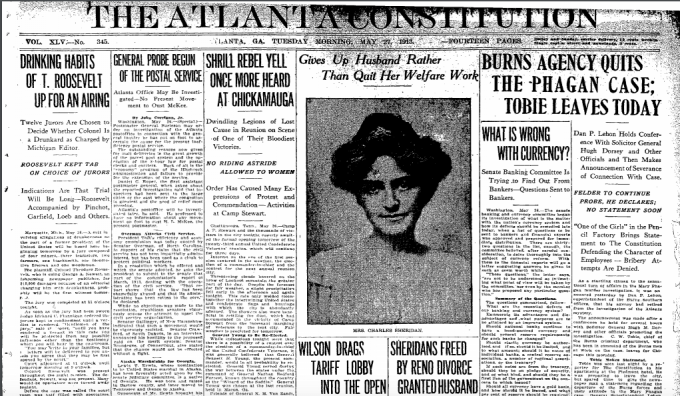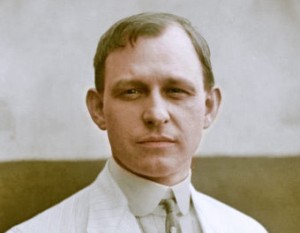Another in our series of new transcriptions of contemporary articles on the Leo Frank case.
Atlanta Constitution
Friday, May 30th, 1913
Amid the warp of falsehood and the woof of conjecture, one thing stands out like a scarlet thread in the Mary Phagan murder mystery—for mystery it still is and still will be until a jury of twelve men fixes the guilt on some man or men.
That one thing—startling in its vivid contrast to the murky maze of contradictions—is the fact that James Conley, the negro sweeper employed at the National Pencil factory, wrote the notes which were found beside the mutilated and lifeless body of Mary Phagan early in the morning of April 26.
Why he wrote them, when he wrote them, whether he wrote at the dictation of someone else or whether he himself committed the crime, are matters yet to be determined. He has lied and lied out of a lie. First he said he wrote the notes on Friday; now he comes forward and admits he wrote them on Saturday, the day the murder was committed. He tells various stories about the writing of the notes. He puts improbable words in the mouth of Leo Frank. He has squirmed and twisted and backed and stalled; but once having stated he wrote the notes his handwriting proves the assertion as indubitiably [sic] as if the bits of paper on which the messages were scrawled bare the crimson imprint of his fingers. Continue Reading →

